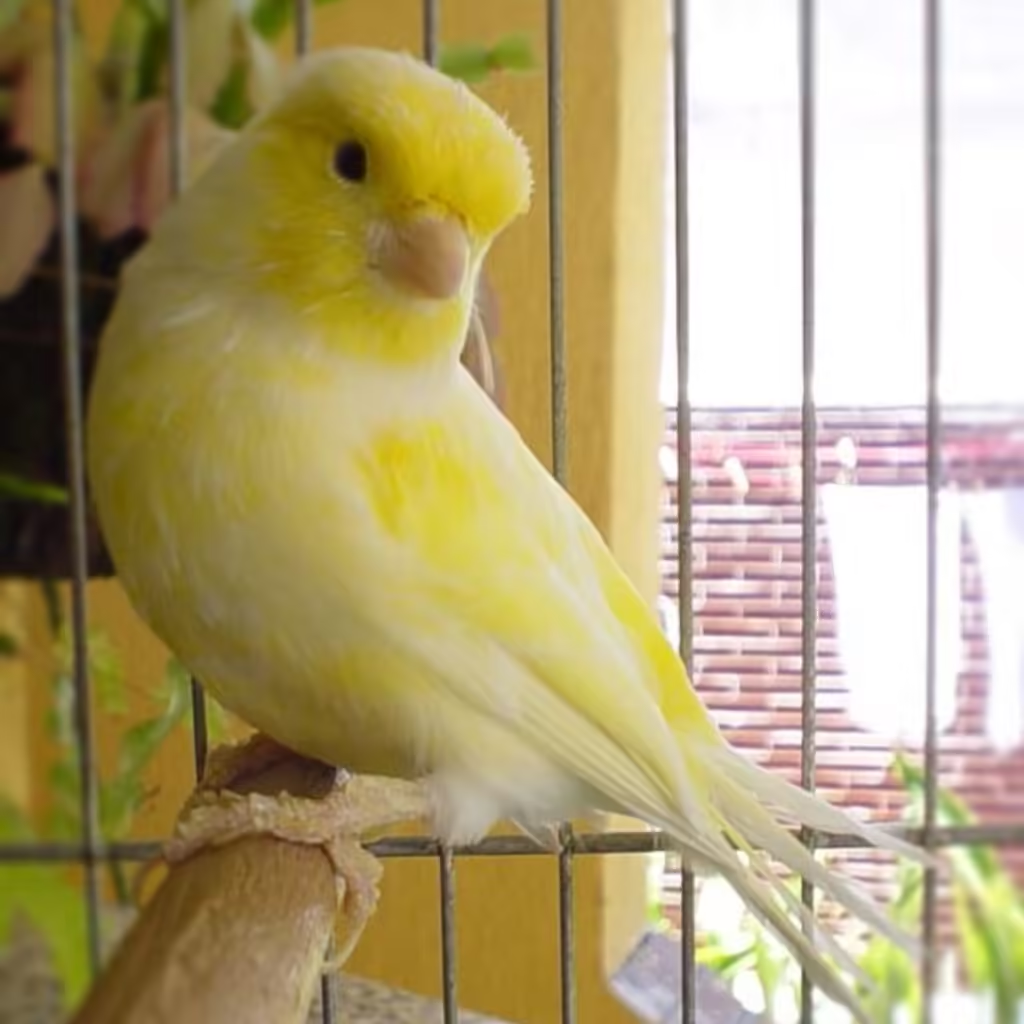
Why Is My Canary Not Laying Eggs: As pet owners, we want the best for our feathered friends. If you’ve noticed your female canary exhibiting normal breeding behaviors like nesting and courtship singing, but she hasn’t produced any eggs, it can be cause for concern. There are several reasons why a canary may not be laying that have nothing to do with lack of care on your part.
In this post, we will explore some common causes for egg-laying issues in pet canaries. Understanding potential problems can help you work with your avian vet to determine if medical intervention is needed. Let’s take a look at why your canary girl might not be completing the egg-laying cycle despite exhibiting broodiness.
Also Read: Why Did My Canary Bird Stop Singing?
Understanding Canary Breeding Behavior
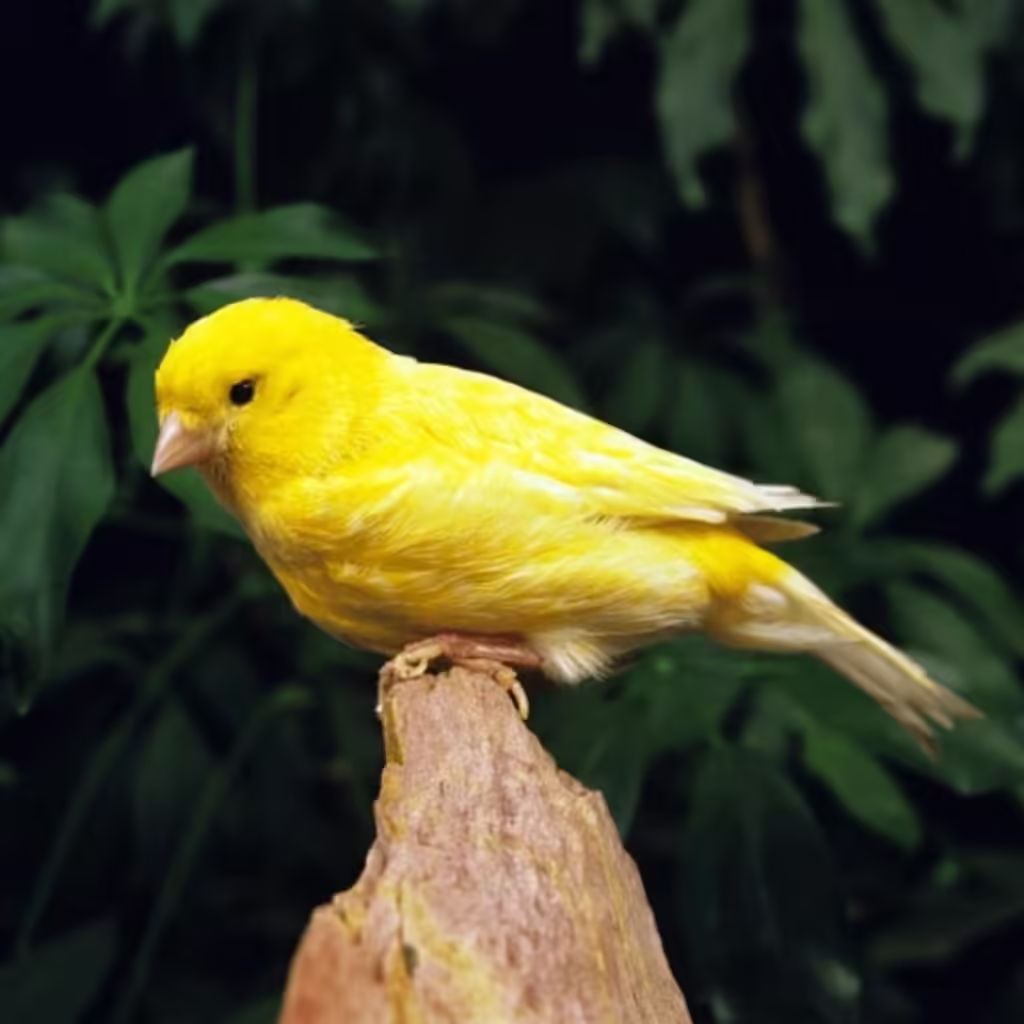
The Natural Breeding Cycle
Canaries typically breed during the spring and summer months when the days are longer. This natural breeding cycle is influenced by light exposure, temperature, and availability of food. Understanding the seasonal nature of canary breeding can help set realistic expectations for when your canary might start laying eggs.
The Role of Age and Maturity
A canary must be sexually mature before it can lay eggs. Female canaries usually reach maturity at around 6-12 months of age. If your canary is younger than this, it may not yet be ready to lay eggs. Conversely, older canaries may experience a decline in fertility, which can also impact egg production.
Factors Affecting Egg Laying
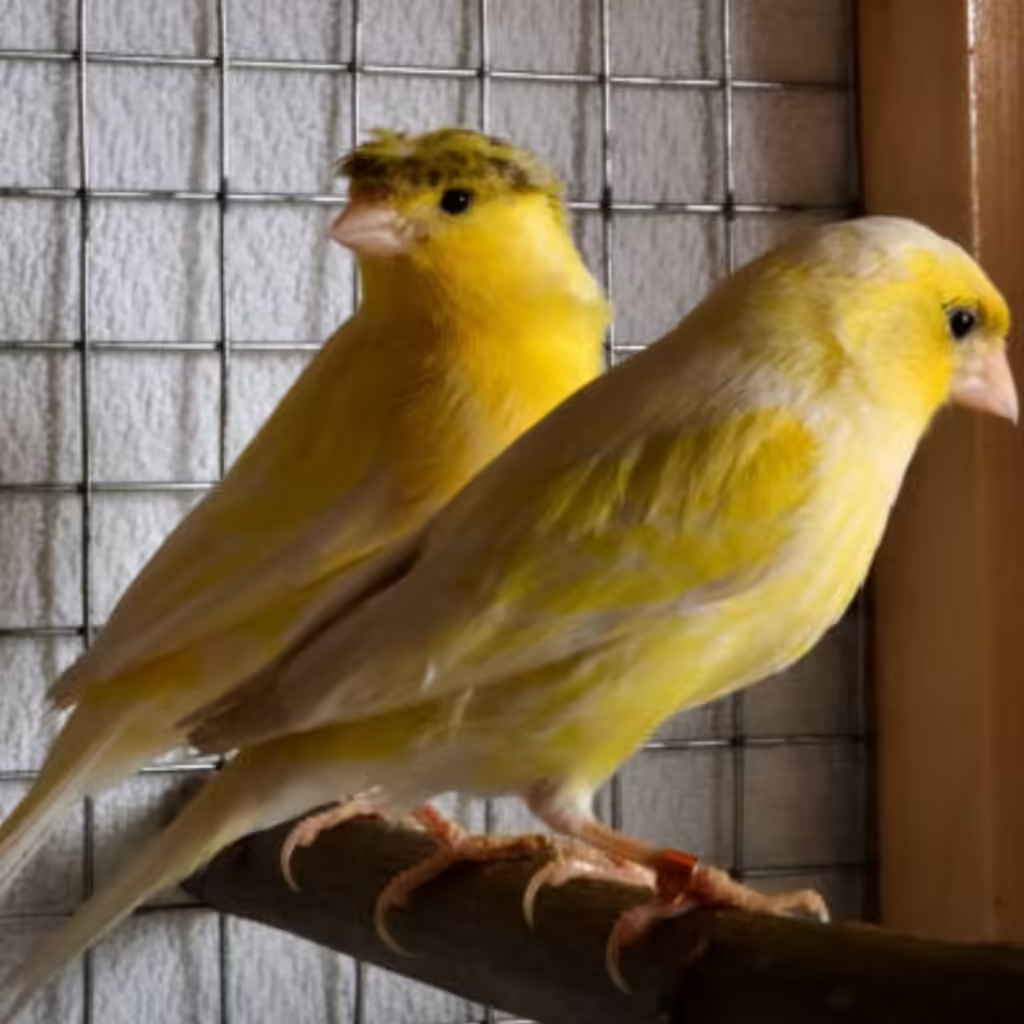
Diet and Nutrition
One of the most critical factors in a canary’s reproductive health is its diet. Canaries require a balanced diet rich in essential nutrients, including calcium, protein, and vitamins. A diet lacking in these nutrients can lead to poor health and reduced egg production.
Essential Nutrients for Egg Laying
- Calcium: Vital for the formation of eggshells. Provide cuttlebone or a calcium supplement.
- Protein: Supports overall health and energy levels. Include high-protein seeds and occasional egg food.
- Vitamins and Minerals: Ensure a balanced diet with fruits, vegetables, and specialized canary food.
Environmental Factors
The environment in which your canary lives can significantly impact its ability to lay eggs. Factors such as light exposure, cage size, and nesting materials play a crucial role in creating a conducive breeding environment.
Light Exposure
Canaries need about 12-14 hours of daylight to stimulate breeding behavior. Using artificial lighting to extend daylight hours during the breeding season can encourage egg laying.
Cage Size and Nesting Materials
Provide a spacious cage and ensure your canary has access to proper nesting materials, such as soft grasses or commercial nesting pads. A comfortable and secure nesting area can promote egg-laying behavior.

Health and Well-being
A canary’s overall health is a critical factor in its ability to lay eggs. Regular health check-ups with an avian veterinarian can help identify and address any underlying health issues that may be affecting egg production.
Common Health Issues
- Infections and Illnesses: Respiratory infections, parasites, and other illnesses can hinder egg laying.
- Stress: High levels of stress due to environmental changes, lack of companionship, or predators can negatively impact egg production.
Mating and Compatibility
For a canary to lay eggs, it must have a compatible mate. Ensuring that your canary has a suitable partner and that they have bonded well is essential for successful breeding.
Selecting a Compatible Mate
- Age and Health: Both birds should be of breeding age and in good health.
- Temperament: Compatible temperaments are crucial for a harmonious breeding relationship.
Also Read: Top 5 Smartest Birds in the World
Troubleshooting Common Problems
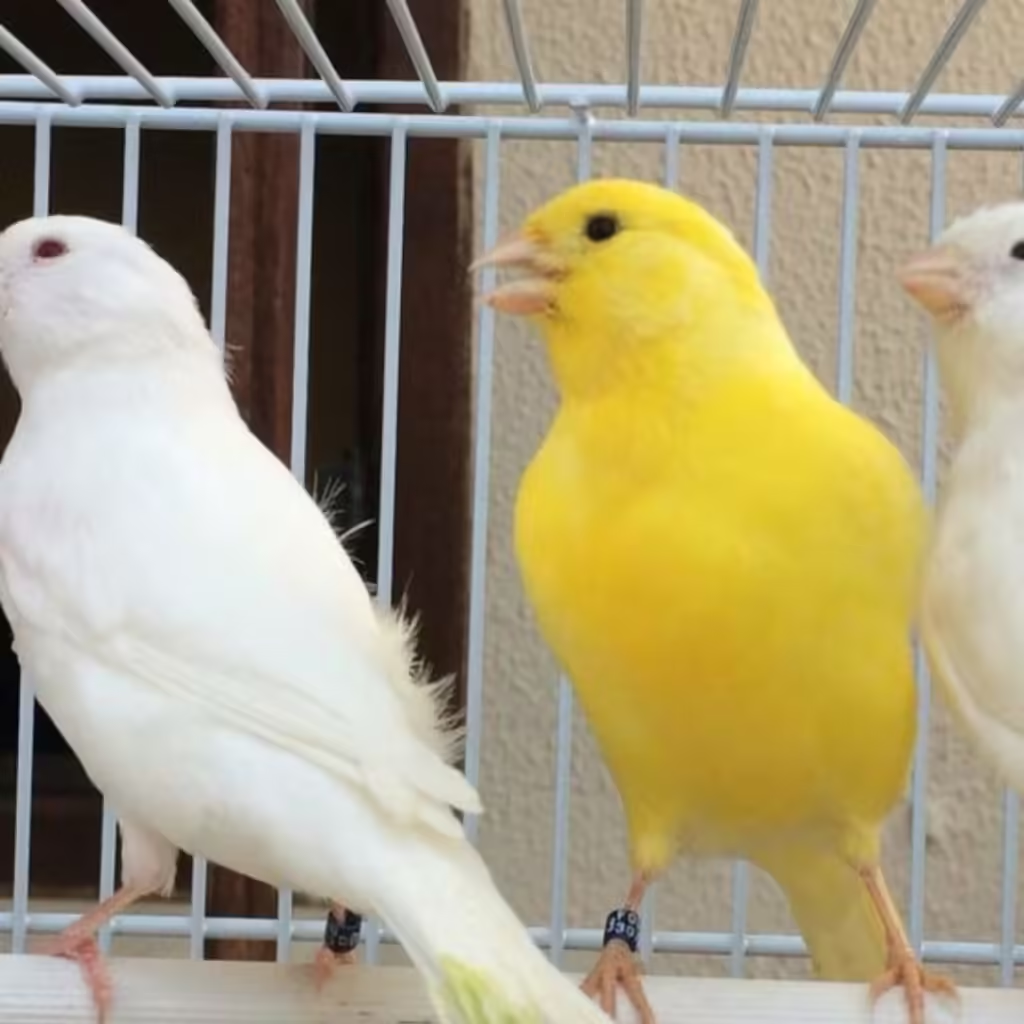
No Eggs Despite Mating
If your canary has a mate but is still not laying eggs, consider the following:
- Nutritional Deficiencies: Re-evaluate the diet to ensure it meets all nutritional needs.
- Inadequate Light Exposure: Adjust the lighting schedule to provide sufficient daylight hours.
- Health Issues: Consult an avian vet to rule out any medical conditions.
Unfertilized Eggs
Sometimes, a canary may lay eggs that do not hatch. This can be due to:
- Poor Mating: The pair may not be mating correctly. Observe their behavior and consult a breeder if necessary.
- Infertility: One or both birds may be infertile. An avian vet can perform tests to determine fertility status.
Egg Binding
Egg binding is a serious condition where a canary is unable to pass an egg. This can be life-threatening and requires immediate veterinary attention.
Signs of Egg Binding
- Straining and Lethargy: The bird appears to be straining to lay an egg and shows signs of distress.
- Swollen Abdomen: Visible swelling in the abdominal area.
Preventive Measures

Balanced Diet
Ensure your canary has a diet that includes:
- High-quality canary seed mix: Rich in essential nutrients.
- Fresh fruits and vegetables: Provide vitamins and minerals.
- Calcium supplements: Cuttlebone or mineral blocks.
Optimal Living Conditions
Maintain a healthy environment by:
- Providing sufficient light exposure: 12-14 hours of daylight.
- Ensuring a spacious cage: With access to nesting materials.
- Reducing stress: Keep the cage in a quiet, secure location away from potential predators.
Regular Health Check-ups
Schedule regular visits to an avian veterinarian to:
- Monitor health: Early detection of potential issues.
- Provide necessary treatments: For infections, parasites, or other health concerns.
Encouraging Egg Laying

Creating the Right Environment
To encourage egg laying, ensure that your canary’s environment mimics natural breeding conditions:
- Adjust lighting: Use artificial lights to extend daylight hours.
- Provide nesting materials: Offer a variety of soft materials for nest building.
- Maintain optimal temperature: Keep the environment warm and stable.
Behavioral Stimulation
Sometimes, social and environmental stimulation can encourage egg laying:
- Introduce a mirror: Can stimulate breeding behavior in some canaries.
- Play canary songs: Recorded songs can encourage natural behavior.
Why Does My Canary Keep Laying Eggs?
A female canary’s hormone levels are primarily influenced by the amount of daily light exposure and presence of a male. When days are short on light or a male is nearby, her hormones signal the body to breed. Even with no male, estrogen responses may cause egg production. By extending nighttime darkness to at least 12 hours, removing any nesting areas, adjusting a diet lower in protein and separating the female from other birds, her hormones should stop stimulating egg-laying. These environmental and dietary changes can help redirect a canary’s hormones away from breeding mode and reduce excessive egg production.
How Do I Know If My Canary Is Going To Lay Eggs?
- Nest building behavior – The female will begin collecting and arranging nesting materials like cotton, grasses or feathers. She may become more vocal as well.
- Abdomen swelling – As the eggs develop inside, the abdomen will appear larger and rounder than usual. You may be able to gently feel the eggs through the body.
- Changed appetite – Right before laying, the female may eat more food or have a decreased appetite for a day or so.
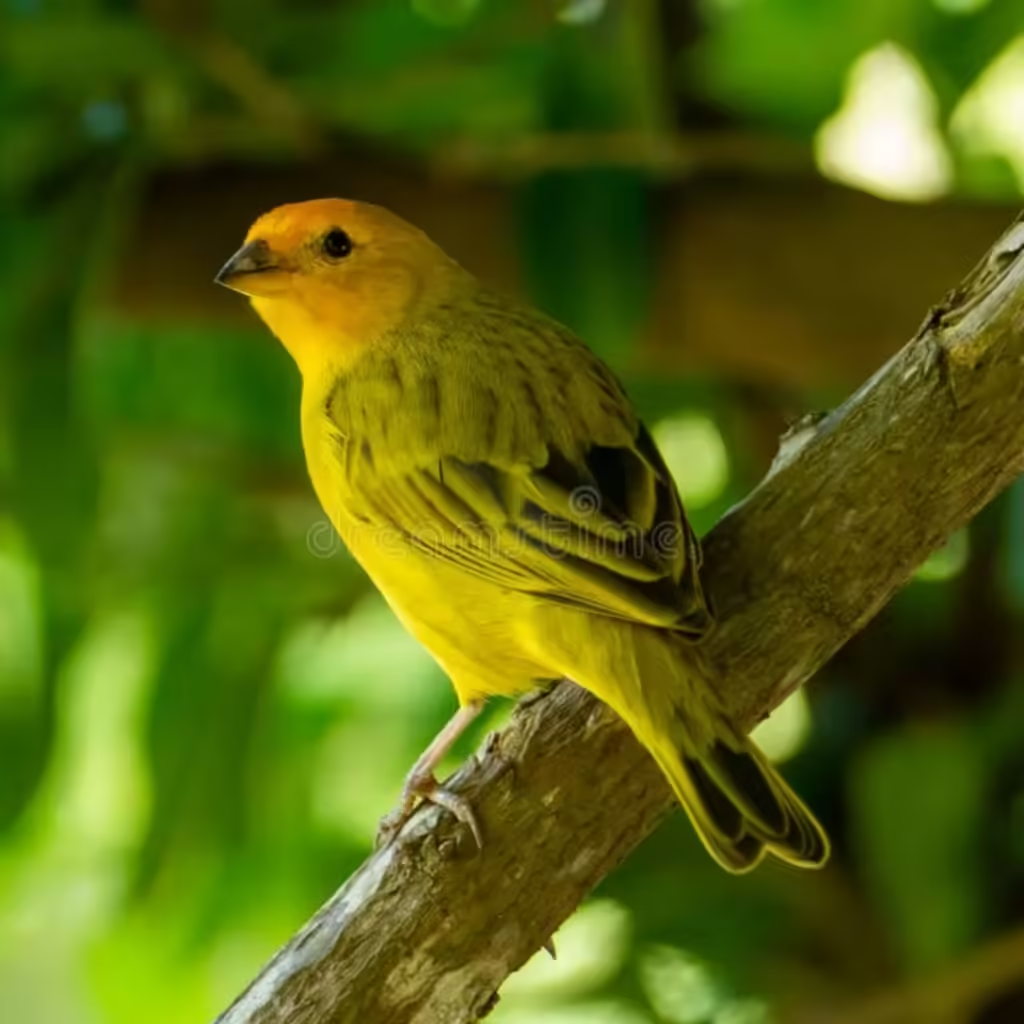
- Spotting/discharge – A clear or white fluid discharge may be seen around the vent area as the eggs move into position for laying.
- Restlessness – The female may seem agitated, constantly moving nesting materials or perching in unusual spots as the big day approaches.
- Egg retrieval – On the actual laying day, she’ll remain in the nest for short periods, arranging herself. Listen for brief sounds of egg movement or tap egg retrieval sounds.
Also Read: Pros & Cons of Owning an African Grey Parrot
Conclusion – Why Is My Canary Not Laying Eggs?
Understanding why your canary is not laying eggs involves a comprehensive look at various factors, including diet, environment, health, and mating compatibility. By addressing these aspects and providing the best possible care, you can create a conducive environment for your canary to lay eggs. Regular health check-ups, a balanced diet, and a supportive living environment are key to ensuring the reproductive health of your canary. With the right approach, you can help your feathered friend thrive and potentially enjoy the experience of raising baby canaries.
Pingback: Where to Buy an African Grey Parrot | Pet Care Sensei
Pingback: 10 Fun Facts About Adélie Penguins | Pet Care Sensei
Pingback: Everything You Need to Know About Adélie Penguins